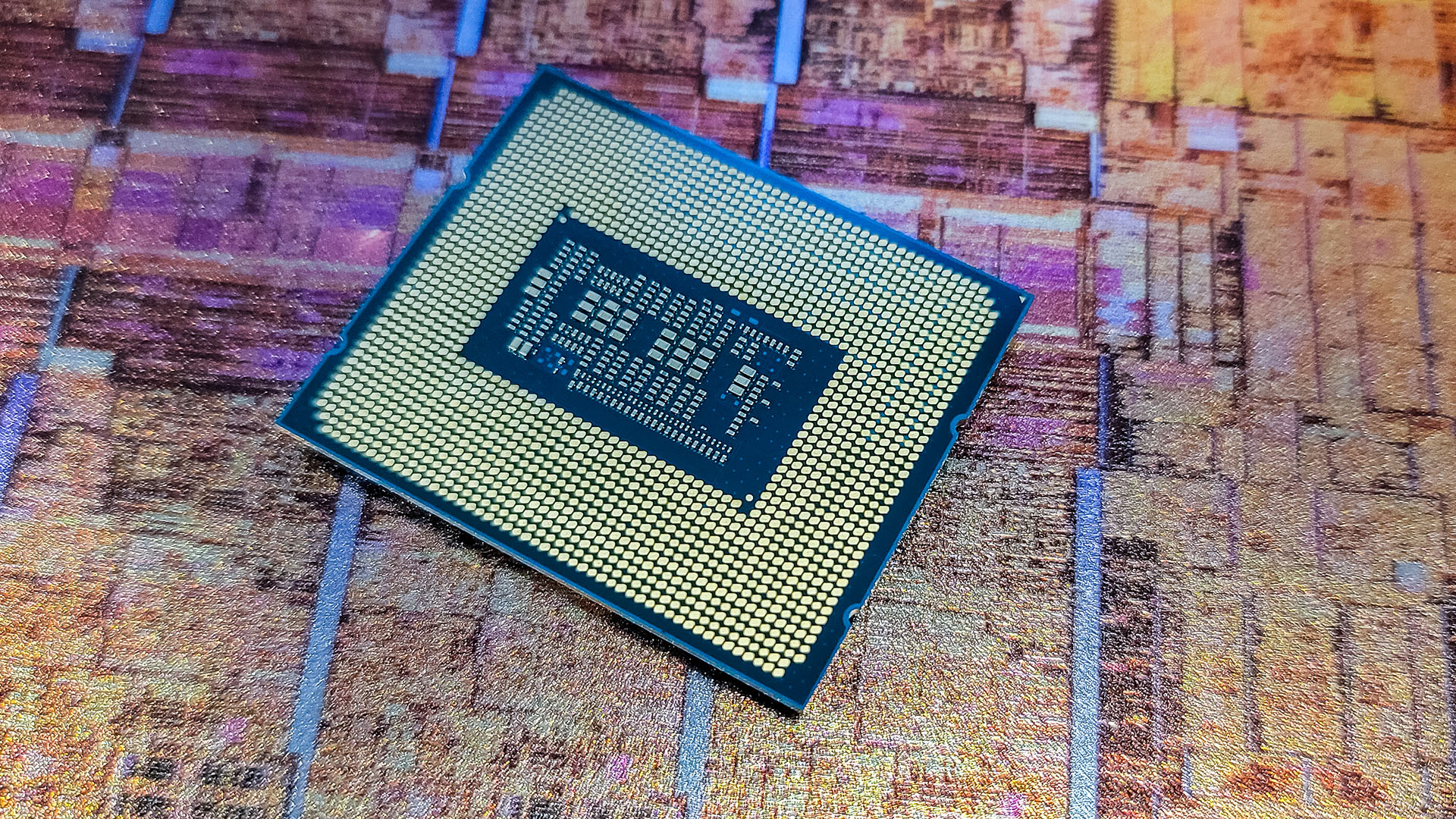Intel Raptor Lake causes jaws to drop with 13700K CPU spotted at 6.2GHz overclock
Core i7-13700K leak comes alongside spillage on the 13900K processor, too

Intel’s Raptor Lake processors have appeared in another couple of leaks, with the rumor mill cranking into high gear around these 13th-gen chips, and purported pre-release samples of the Core i9-13900K and Core i7-13700K being spotted – with the latter running at a seriously speedy 6.2GHz.
Let’s start with that 13700K leak that VideoCardz flagged up. It consists of a qualification sample chip (meaning essentially a finished CPU, sent out for testing) benchmarked on CPU-Z while being clocked at almost 6.2GHz (6185MHz) across all its performance cores (with the efficiency cores running at 4189MHz), as shared on Twitter by QXE.
Well because you guys liked me being a rumormill so much 🙃13700K QS. pic.twitter.com/pH2kL34JReAugust 2, 2022
Note that this isn’t QXE’s benchmarking – rather a third-party from Discord, so apply some extra skepticism at this point on top of the usual caution around any leak – but if it is genuine, it’s pretty impressive to see the 13700K reach that clock speed. What we don’t know is anything about the cooling used (we’ll come back to that).
Furthermore, the single-core benchmark result on CPU-Z hit 1,010, which is very speedy, and outdoes the recent Raptor Lake leaks we’ve seen. Multi-core was less impressive at 11,877, but then hyper-threading was disabled (with the voltage ramped up in a big way to 1.536 Volts in an effort to get a big overclock and single-core result, basically).
Wccftech (via VideoCardz) also spotted a second Raptor Lake leak from Baidu (again, apply plentiful seasoning here) showing an engineering sample Core i9-13900K. This was overclocked to 6GHz, using a similar voltage to the 13700K above (1.546V), but with the efficiency cores disabled. The flagship achieved a score of 976 for single-core in CPU-Z.
The most interesting bit with this second piece of spillage is seeing the 13900K hit 6GHz using standard cooling, meaning nothing exotic, just an all-in-one liquid cooling setup – or so the leaker claims.
Analysis: Raptor Lake looks promising for enthusiasts and tinkerers
It’s a real eye-opener to see that the Core i7-13700K is already being pushed well over the 6GHz mark across all cores, even with the caveats mentioned – the most notable being that unlike the 13900K leak, we don’t know what cooling was used. And there’s a suggestion that the CPU used some fancy cooling method beyond traditional means (not nearly as far as the likes of liquid nitrogen, mind, but certainly something beefy).
Get daily insight, inspiration and deals in your inbox
Sign up for breaking news, reviews, opinion, top tech deals, and more.
Furthermore, running at that kind of voltage (1.5V+) is not really representative of what might be considered reasonable for everyday usage with Raptor Lake. What’s fine for a short round of benchmarking is not necessarily okay for constant use, of course, and if you did push a Raptor Lake chip this hard on an ongoing basis, it would likely start to fray around the edges before too long (unless you got lucky with your silicon).
What we’re trying to say here is don’t expect to buy a 13700K and have it running in excess of 6GHz in your PC. However, what this mounting pile of 6GHz overclocks – we’ve seen a number for Raptor Lake now – point to is that the 13th-gen CPUs should be good for juicing up nicely. Indeed, the leaker QXE makes the assertion that Raptor Lake will be better than Alder Lake when it comes to running at higher voltages for overclocking, saying: “Also 1.3V should be fine this gen to cool unlike Alder.”
So, these are all promising signs that Raptor Lake will take a sizeable step forward in performance terms, particularly for those enthusiasts who are going to engage in overclocking their 13th-gen CPU.
Rumor has it that Raptor Lake processors will arrive in October, and if that turns out to be the case, they’ll be beaten to launch by AMD’s Ryzen 7000 CPUs for which we’ve now heard official confirmation that they’ll arrive before September is out.
Darren is a freelancer writing news and features for TechRadar (and occasionally T3) across a broad range of computing topics including CPUs, GPUs, various other hardware, VPNs, antivirus and more. He has written about tech for the best part of three decades, and writes books in his spare time (his debut novel - 'I Know What You Did Last Supper' - was published by Hachette UK in 2013).